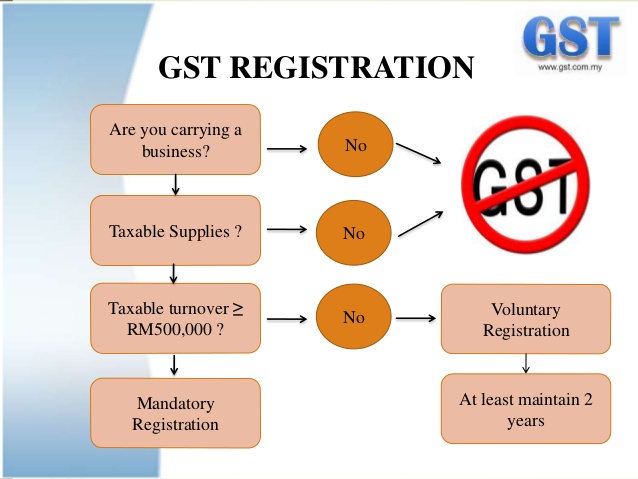From Beginning To End: A Thorough Introduction of GST Enrollment and Exactly How to Successfully Register Your Business
Navigating through the complex procedure of GST enrollment can be a crucial step for any business wanting to establish compliance and legitimacy on the market. Why choose CFO Account & Services for GST registration in Singapore. From understanding the fundamental principles of GST to fulfilling the eligibility standards and gathering the essential paperwork, the trip towards effective enrollment can typically feel like a complicated job. However, with the appropriate advice and understandings, services can enhance this process and unlock the benefits that come with being a signed up entity.
Comprehending GST and Its Value
Comprehending the Goods and Services Tax Obligation (GST) and its value is crucial for services operating in economies where this taxation system is applied. By permitting organizations to assert input tax obligation credit ratings on the tax obligation paid on acquisitions, GST makes certain that tax obligations are calculated only on the value included at each phase of the supply chain.
In addition, GST promotes conformity and openness in the tax regimen, decreasing tax obligation evasion and increasing government income. It streamlines tax obligation management and compliance for companies by giving a common system for tax obligation filing and payment. Overall, a complete understanding of GST is essential for organizations to efficiently browse the intricacies of the tax system and make sure conformity with the regulation.
Eligibility Criteria for GST Enrollment
To sign up for GST, businesses should meet specific qualification criteria laid out by the tax authorities. The main need for GST enrollment is that the business's aggregate turnover goes beyond the limit set by the government, which differs by state. Since the current standards, businesses with an annual turn over of Rs. 40 lakhs or even more in many states have to register for GST. Nonetheless, for companies running in uneven regions and northeastern states, the limit is Rs. 20 lakhs. Additionally, particular services, such as those involved in inter-state supply of goods or services, informal taxed individuals, and non-resident taxable persons, are called for to register for GST no matter their turnover.
Additionally, organizations associated with supplying goods or solutions through ecommerce platforms are likewise mandated to register for GST, irrespective of their turn over. In addition, services that were signed up under the previous tax regime, such as barrel, excise responsibility, or solution tax obligation, should transition their registration to GST. Adhering to these eligibility standards is essential for businesses looking for to conform with the GST policies and avoid any fines for non-compliance.
Papers Needed for GST Registration
Moreover, papers confirming the identity and address of the marketers or companions associated with the service, such as frying pan card, Aadhaar card, or ticket, are vital for GST registration. Savings account statements or canceled cheques showing the name of the address, account, and service number are likewise necessary to confirm the checking account information provided throughout registration.
Ensuring all the necessary documents remain in order and conveniently offered will certainly simplify the GST enrollment procedure and assistance organizations prevent complications or delays.
Online Registration Process for GST

After completing the kind, supporting documents need to be posted as per the guidelines offered. These files usually include proof of business registration, address evidence, bank declarations, and identity evidence of business proprietor. It is vital to ensure that all records are clear, valid, and uploaded in the specified format to prevent hold-ups in the registration procedure.
Once the application and records are submitted, organizations can track the condition of their GST enrollment online. If there are no problems or additional details needed, the GST enrollment certificate will certainly be released digitally, marking the effective completion of the on the internet enrollment procedure.
Post-Registration Compliance and Tips

Additionally, services must keep correct account books, consisting of billings, accounting records, and financial statements, to support the information offered in GST returns. Regular audits and reconciliations ought to be performed to make sure information accuracy and compliance with GST laws. Moreover, organizations should stay updated on any modifications in GST laws, rates, or compliance procedures to make required adjustments quickly. Looking for specialist help from tax obligation consultants or accountants can likewise assist companies browse complex GST compliance requirements successfully. By staying proactive and vigilant in post-registration conformity, services can avoid penalties, maintain great standing with tax obligation authorities, and foster functional effectiveness.
Conclusion
In verdict, the procedure of GST registration is necessary for organizations to follow tax laws and operate lawfully. By recognizing the qualification criteria, gathering the needed documents, and completing the on-line enrollment process, services can successfully register for GST. When required to make certain smooth operations., it is vital to stay certified with post-registration requirements and look for specialist support (Why choose CFO Account & Services for GST registration in Singapore).
Companies that were signed up under the previous tax regimen, such as Barrel, excise duty, or service tax obligation, have to transition their registration to GST. The crucial papers needed directory for GST enrollment include proof of service enrollment or unification such as the Certification of Incorporation, partnership act, or enrollment certification.Upon effective completion of the GST registration process, businesses need to promptly adhere to post-registration conformity requirements to preserve regulative compliance and ensure smooth operations.In verdict, the process of GST enrollment is vital for businesses to abide with tax guidelines and run legally. By recognizing the qualification requirements, collecting the required papers, and completing the on-line registration procedure, companies can efficiently sign up for GST.
Comments on “Why CFO Account & Services is the Preferred Choice for GST Registration in Singapore”